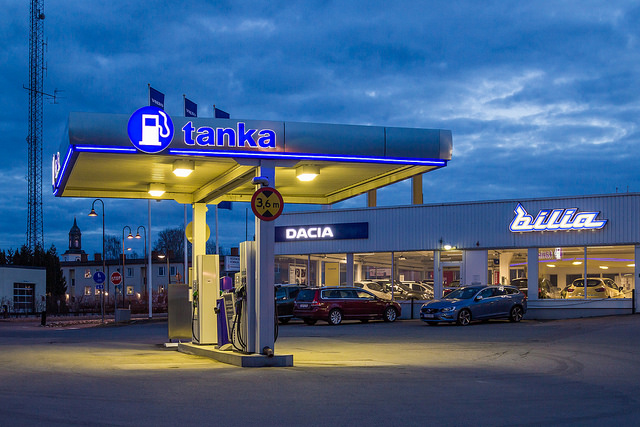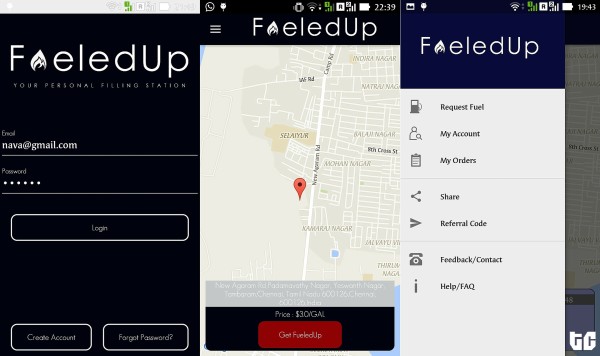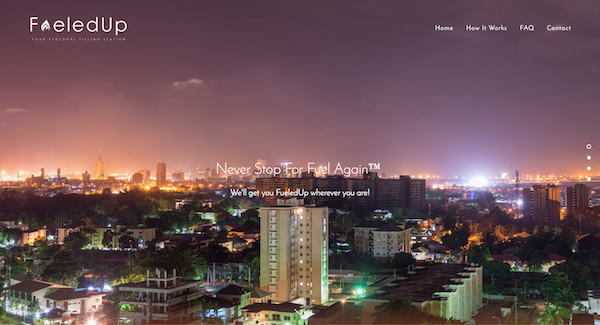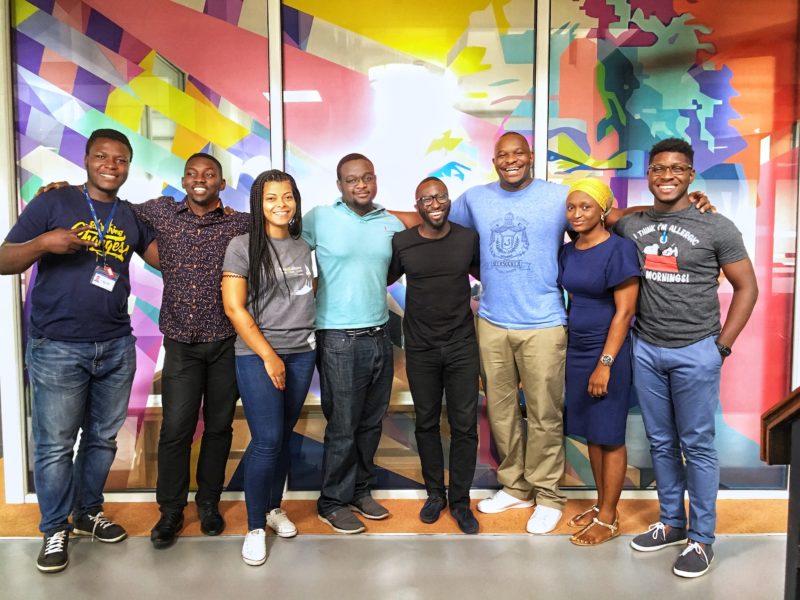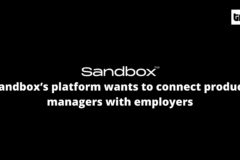This is a public service announcement. I repeat, this is a public service announcement. On-demand fever is sweeping across the technology space, and domain experts are falling over themselves to “Uber-ify” their respective industries.
Forget that the model doesn’t necessarily translate across fields, everyone and their mother is going on-demand – from oil changes, to private jets, car washes and many others. It’s easy for people to dismiss many of these as bandwagon hoppers, and proclaim that they’re all going to die, but once in awhile, something…interesting catches your attention.
And FueledUp did catch my attention. Their value proposition is simple: they are a mobile filling station who will deliver fuel to anyone in Lagos. Uber, but for petrol.
Many question marks popped off in my head, the second I heard about the model: safety, delivery time, availability during fuel scarcity periods etc. but FueledUp founder, Subomi Owo-Odusi thinks he’s on to something here, and after talking about it with him, I’m inclined to give him the benefit of the doubt. It’s not a completely new idea though, I’ve seen a number of Silicon Valley startups who offer an identical service.
How does it work?
https://youtu.be/3QazCMjw-oI
After you’ve signed up for FueledUp, or downloaded the mobile app, placing an order is as simple as entering your location using the map (like you would in any other app), and tapping the “Get FueledUp” button. Either that, or you can access the “Request Fuel” button through the hamburger menu at the top left of the screen (see screenshot).
Now, I know that the city of Lagos is rife with traffic jams and bottlenecks. The only way the team at FueledUp.co can get fuel to customers in a reasonable amount of time (just over 30 minutes, they say) is if it’s done hyper-locally. That is, if they have multiple drivers/riders at strategic points across the road network and each one gets routed to the requests that are nearest to them. Subomi has confirmed that indeed, this is the arrangement they have in place. They have trucks and bikes with permits from the US Department of Transportation to carry flammable liquids.
When they launch in May, the service will only deliver Petrol, but as demand grows, FueledUp intends to add Diesel to their service stack. In the same vein, according to their FAQ page, they will start by servicing Ikoyi, Victoria Island and Lekki Phase 1, but in the weeks after their launch, they will open it up to Yaba, Surulere, Ikeja and Apapa. Plus, they’ve included a form to fill so you can be contacted when the service gets opened up to your location.
I think a few things need to be ironed out, but it’s a service whose time has come – especially in light of Nigeria’s persistent fuel crises. I can already tell, that as soon as they launch, they will receive a flurry of requests and their survival depends on how well they perform in the first few weeks. Word-of-mouth is a thing.
I mean, it’s pointless if a service like this is crippled during fuel scarcities, because fuel is…well, scarce. Subomi says that this isn’t an issue to be worried about because their parent company, Novoinno Logistics is into fuel distribution so they have the kind of access to fuel depots that the rest of us do not. Also, because they are very…plugged into that space, they receive word about impending scarcities before they become common knowledge and everyone starts to lose their shit.
Speaking of scarcities…so that things continue to make sense for them as a going concern, they will implement surge pricing during scarcities, just like Uber. The good news is, they say their prices will remain lower than everyone else’s all year round. This is reflected in their FAQ page, when they say they’ll deliver a minimum of 18 litres of fuel at N1500. Some quick back-of-the-napkin math tells me that this brings the price per litre to around N83. Of course, this is subject to change depending on how much stock is available.
Subomi has a wealth of experience as a fuel marketer, and he appears to know what he’s doing so if he sees an opportunity to tap into here, I’m inclined to trust him. That is, until I’m proven wrong.
He’s the expert, afterall. Not me. Not you. Not Donald Trump.









